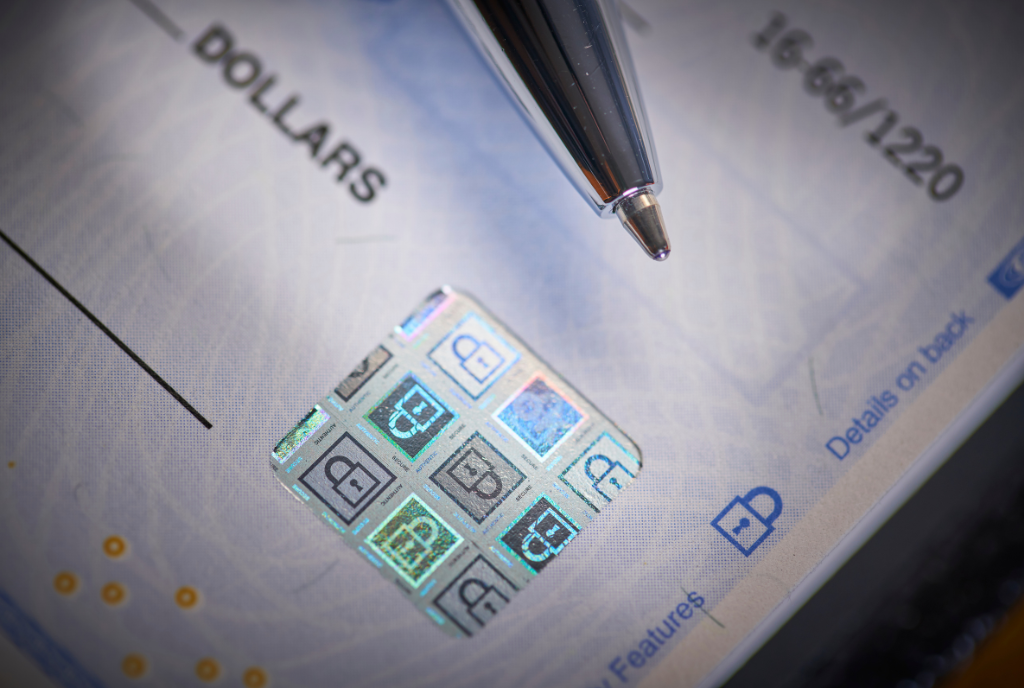Resource Corner
Check Fraud: What is it and what to look out for

- Forgery: For a business, forgery typically takes place when an employee issues a check without proper authorization. Criminals will also steal a check, endorse it and present it for payment at a retail location or at the bank teller window, probably using bogus personal identification.
- Counterfeiting and Alteration: Counterfeiting can either mean wholly fabricating a check --using readily available desktop publishing equipment consisting of a personal computer, scanner, sophisticated software, and high-grade laser printer -- or simply duplicating a check with advanced color photocopiers. Alteration primarily refers to using chemicals and solvents such as acetone, brake fluid, and bleach to remove or modify handwriting and information on the check. When performed on specific locations on the check such as the payee's name or amount, it is called-spot alteration; When an attempt to erase information from the entire check is made, it is called-check washing.
- Paperhanging: This problem primarily has to do with people purposely writing checks on closed accounts (their own or others), as well as reordering checks on closed accounts (their own or others).
- Check Kiting: Check Kiting is opening accounts at two or more institutions and using "the float time" of available funds to create fraudulent balances. This fraud has become easier in recent years due to new regulations requiring banks to make funds available sooner, combined with increasingly competitive banking practices.
- Payee Fraud: Changing the name of the payee on a check to someone other than the intended recipient.
- Phantom Deposit Fraud: Depositing a fake check into an account and then withdrawing funds before the check bounces.
- Check Washing: The use of chemicals to remove the ink from a check, allowing a criminal to rewrite the check to themselves for a larger amount.
- Remote Deposit Fraud: Using a mobile device to deposit a check that has already been deposited at another bank or using fraudulent checks to make mobile deposits.
- Business Email Compromise: Criminals hack into a business's email system and send fraudulent checks to vendors or employees, who then deposit them into their own accounts.
- Lottery or Sweepstakes Scams: Criminals send fake checks to victims as part of a fake lottery or sweepstakes and ask the victim to deposit the check and send a portion of the funds back to cover taxes or fees.